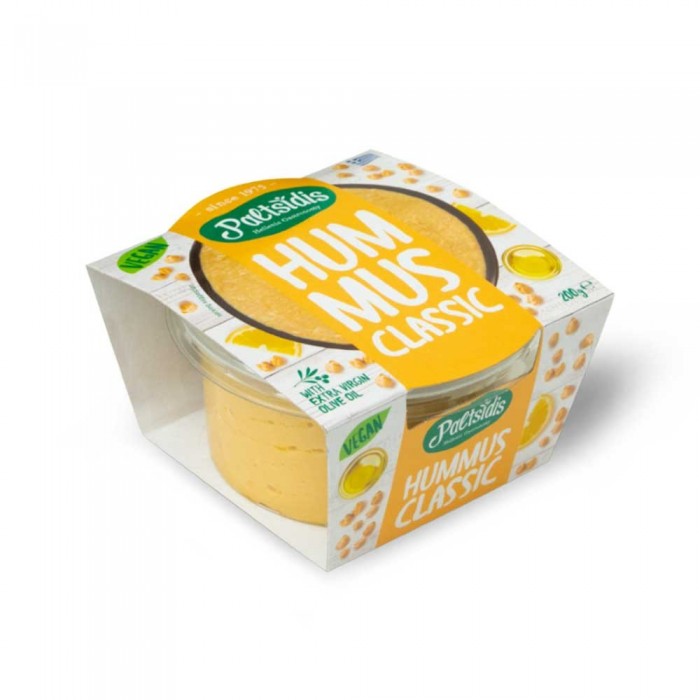
The traces of Hummus date back to several ancient civilizations of Mesopotamia and Egypt. Some Egyptian historical texts refer to a purée of fava beans seasoned with oil and spices, considered an important energy source for workers. Over the centuries, the recipe has evolved and refined, with the introduction of chickpeas instead of fava beans and tahini, made from roasted and ground sesame seeds. The use of tahini is essential to give Hummus its characteristic creamy consistency and unique flavor. Hummus has become a staple of Middle Eastern cuisine, later spreading throughout the Mediterranean basin and beyond. Each country has developed its own variant, adding typical local ingredients such as roasted peppers, beets, green olives or fresh mint. Hummus: a health ally Hummus is much more than just a dip. It is a food rich in precious nutrients for our body: Protein: as a plant-based source of high biological value protein, Hummus is an excellent ally for those following a vegetarian or vegan diet. Fiber: the presence of chickpeas and tahini makes Hummus a fiber-rich food, which promotes intestinal transit and helps you feel fuller for longer. "Good" fats: olive oil, the main ingredient of Hummus, is rich in monounsaturated fats, beneficial for cardiovascular health. Vitamins and minerals: Hummus is a good source of B vitamins, vitamin C, iron, calcium, and phosphorus. Pairings: Hummus is an extremely versatile food in the kitchen. It can be enjoyed as: Appetizer: perfect for accompanying fresh vegetables like carrots, fennel, celery, and bell peppers cut into strips. Dip for wraps and sandwiches: Hummus can be spread on vegetable wraps or used as a dressing for vegetarian sandwiches or ones with falafel. Dressing for first courses: a delicious addition to cold pasta, couscous or grain salads. Healthy and nutritious snack: Hummus is perfect for a quick and healthy snack, accompanied by whole-grain crackers or pita bread. Storage: Store in the refrigerator at 2-4°C
Price VAT included
The traces of Hummus date back to several ancient civilizations of Mesopotamia and Egypt. Some Egyptian historical texts refer to a purée of fava beans seasoned with oil and spices, considered an important energy source for workers. Over the centuries, the recipe has evolved and refined, with the introduction of chickpeas instead of fava beans and tahini, made from roasted and ground sesame seeds. The use of tahini is essential to give Hummus its characteristic creamy consistency and unique flavor. Hummus has become a staple of Middle Eastern cuisine, later spreading throughout the Mediterranean basin and beyond. Each country has developed its own variant, adding typical local ingredients such as roasted peppers, beets, green olives or fresh mint. Hummus: a health ally Hummus is much more than just a dip. It is a food rich in precious nutrients for our body: Protein: as a plant-based source of high biological value protein, Hummus is an excellent ally for those following a vegetarian or vegan diet. Fiber: the presence of chickpeas and tahini makes Hummus a fiber-rich food, which promotes intestinal transit and helps you feel fuller for longer. "Good" fats: olive oil, the main ingredient of Hummus, is rich in monounsaturated fats, beneficial for cardiovascular health. Vitamins and minerals: Hummus is a good source of B vitamins, vitamin C, iron, calcium, and phosphorus. Pairings: Hummus is an extremely versatile food in the kitchen. It can be enjoyed as: Appetizer: perfect for accompanying fresh vegetables like carrots, fennel, celery, and bell peppers cut into strips. Dip for wraps and sandwiches: Hummus can be spread on vegetable wraps or used as a dressing for vegetarian sandwiches or ones with falafel. Dressing for first courses: a delicious addition to cold pasta, couscous or grain salads. Healthy and nutritious snack: Hummus is perfect for a quick and healthy snack, accompanied by whole-grain crackers or pita bread. Storage: Store in the refrigerator at 2-4°C